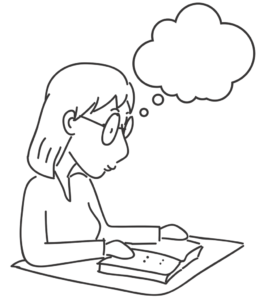Our hair is often referred to as our crowning glory. Its state can add or detract from the physical attractiveness of any person. Like our skin, our hair can be a good indicator of our over-all physical and psychological condition, telling us if our body is in balance. A physically and emotionally healthy person’s hair will be radiant and shining, their scalps pliant and moist. Our hair becomes dull and lifeless, prone to loss and split ends, and will become waxy from overactive sebaceous glands.
Hair loss is a fairly common condition that affects both men and women. While it is normal to lose up to one hundred hairs on a daily basis, anything in excess of that may be considered hair loss. This condition may be classified as either hereditary or be brought on as a side effect of an underlying medical or psychological condition. Apart from those, hair loss can also be caused by overstyling of the hair, harsh shampoos, forceful and too frequent hair brushing, and allergic reactions to food, medications or other allergens. Contrary to popular opinion, hereditary hair loss is not caused by excessive hair loss but rather by the lack of hair growth to replace the hairs that were previously shed. On the other hand, physical or psychological conditions such as illness; hormonal changes; pregnancy, childbirth, and birth control pill usage; nervous habits; and chemotherapy.
Another condition that may cause hair loss is extreme stress. Stress is present in almost every human experience, regardless of whether it is positive or negative. It can be seen as our body’s negative response to the pressures of life, and how it affects us individually cannot be predicted; sometimes, stress isn’t even immediately considered as the cause of or what aggravates the health conditions plaguing us. The effects of stress on our bodies differ greatly from person to person, largely dependent on the amount of stress we are under and how we handle it. It can manifest in any number of insidious and vague symptoms that may build up over time if ignored, leading to more serious health conditions. Often felt largely as a consequence of modern life, we are all subjected to increasing amounts of stress on a daily basis. We feel it as we are caught up in the daily grind of work, family, school, and routine.
Stress can trigger two types of hair loss: telogen effluvium and alopecia areata. Telogen effluvium is a type of hair loss that causes large numbers of hairs to stop their growing phase and shift into a resting phase, eventually falling out as a result. Once the stress is eased or eliminated, the hair eventually grows back within six to nine months.
Alopecia areata is a type of hair loss wherein the body’s white blood cells attack the hair follicle, which stops hair growth. It is often starts as a small round patch but may eventually spread to the whole scalp and may even affect body hair. Although in most cases the hair does grow back, some sufferers may require treatment.
Before the hair loss worsens, it is important to seek medical advice immediately. A doctor will be able to determine whether the cause of the hair loss is because of stress, heredity, or other physical or psychological conditions. By determining the cause, an appropriate treatment will be prescribed. In cases where stress is the culprit behind the hair loss, a lifestyle change may be needed to reduce the levels of stress we are subjected to. A healthy diet, adequate amounts of sleep, regular exercise, and relaxation can go a long way in ensuring that our stress levels are within manageable amounts.






